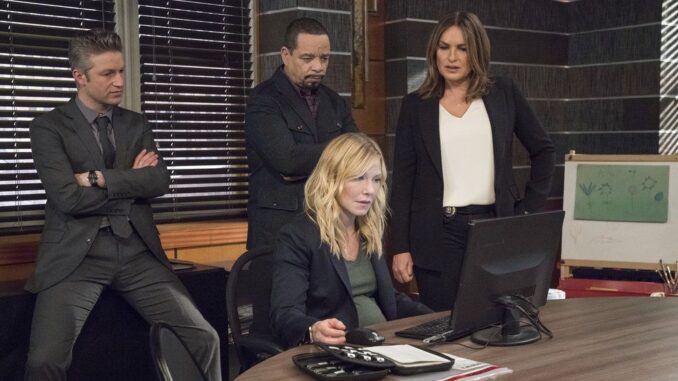
The Echo of the “Dun-Dun”: What Makes Law & Order SVU America’s Most Beloved Police Series?
The moment it begins, a collective, almost primal understanding settles in. The stark, black-and-white title card, the familiar voiceover, and then – the iconic “dun-dun.” It’s a sonic cue that instantly signals the arrival of Law & Order: Special Victims Unit, a show that has not merely graced television screens for over two decades but has burrowed deep into the American psyche, becoming arguably its most beloved police series. Its enduring appeal is not simply a testament to longevity, but to a unique and potent blend of unflinching realism, profound empathy, and characters who have become almost mythological figures in the fight against the darkest corners of human behavior.
At its core, SVU‘s enduring magnetism lies in its relentless, often uncomfortable, confrontation with the real world. Unlike many procedurals that traffic in high-stakes bank robberies or intricate murder plots, SVU plunges into the psychological aftermath of sexual assault, child abuse, and domestic violence. It’s a show “ripped from the headlines,” not just in its legal plots but in its mirror-like reflection of societal anxieties and evolving understandings of consent, power dynamics, and victimhood. From the Me Too movement to internet predators, from the complexities of familial abuse to the institutional failures that often plague the justice system, SVU has consistently and courageously tackled topics that other shows shy away from. This topicality imbues each episode with an unsettling relevance, validating the public’s fears and frustrations, and transforming fiction into a powerful, if grim, form of social commentary. Audiences don’t just watch a crime unfold; they witness a reflection of their own world’s hidden struggles.
Crucially, SVU distinguishes itself through its unwavering focus on the victim. While other police dramas often fetishize the perpetrator or glorify the chase, SVU places the survivor’s journey – their trauma, their resilience, their battle for justice – front and center. We are invited into the immediate aftermath, into the hushed interrogation rooms where pain is tentatively articulated, into the agonizing decisions about whether to press charges, and into the often brutal legal gauntlet of cross-examination and public scrutiny. This victim-centric lens fosters an extraordinary degree of empathy. Viewers don’t just solve a puzzle; they bear witness to profound suffering and, crucially, to the slow, painstaking process of healing and reclaiming agency. It’s a cathartic experience for many, offering a fictional space where the silenced are given a voice and the victimized are believed, providing a sense of justice that is often elusive in the real world.
Of course, no amount of social relevance or empathetic storytelling would sustain a series for so long without anchoring characters, and in Olivia Benson, SVU possesses an icon. Mariska Hargitay’s portrayal of Benson, evolving from a determined detective to a compassionate sergeant, and now a steadfast captain, is the beating heart of the series. She is the unwavering moral compass, a beacon of strength and vulnerability who has personally sacrificed much for her calling. Her journey, alongside those of Fin Tutuola’s dry wit and grounded cynicism, and the legendary, albeit now departed, Elliot Stabler’s righteous fury, provides the emotional core that viewers cling to. These characters aren’t just law enforcement officers; they are surrogate protectors, emotional anchors through the storm of each week’s horrific narrative. We invest in their lives, their struggles, their small victories, and their profound frustrations, making their pursuit of justice feel deeply personal.
In its unique fusion of procedural rigor, uncomfortable timeliness, and profound human empathy, Law & Order: SVU has transcended mere entertainment to become a cultural touchstone. It’s a series that doesn’t just entertain; it educates, validates, and provokes thought, offering a fictional space where the darkest corners of human nature are brought to light, and the enduring fight for justice and dignity is waged, week after week. The “dun-dun” isn’t just a sound; it’s a promise: a promise that someone will listen, someone will fight, and in the grim landscape of human cruelty, there will always be a special victims unit. And in that promise, America finds its most beloved police series.
